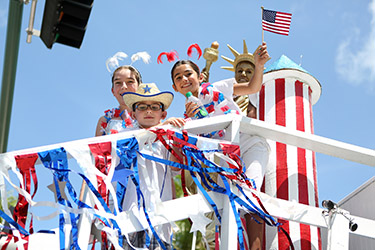José Martí
(1853—1895)
Yo sé de Egipto y Nigricia,
Y de Persia y Xenophonte;
Y prefiero la caricia
Del aire fresco del monte.
Yo sé de las historias viejas
Del hombre y de sus rencillas;
Y prefiero las abejas
Volando en las campanillas.
Yo sé del canto del viento
En las ramas vocingleras:
Nadie me diga que miento,
Que lo prefiero de veras.
Yo sé de un gamo aterrado
Que vuelve al redil, y expira,
Y de un corazón cansado
Que muere oscuro y sin ira.
Odio la máscara y vicio
Del corredor de mi hotel:
Me vuelvo al manso bullicio
De mi monte de laurel.
Con los pobres de la tierra
Quiero yo mi suerte echar:
El arroyo de la sierra
Me complace más que el mar.
Denle al vano el oro tierno
Que arde y brilla en el crisol:
A mí denme el bosque eterno
Cuando rompe en él el Sol.
Yo he visto el oro hecho tierra
Barbullendo en la redoma:
Prefiero estar en la sierra
Cuando vuela una paloma.
Busca el obispo de España
Pilares para su altar;
¡En mi templo, en la montaña,
El álamo es el pilar!
Y la alfombra es puro helecho,
Y los muros abedul,
Y la luz viene del techo,
Del techo de cielo azul.
El obispo, por la noche,
Sale, despacio, a cantar:
Monta, callado, en su coche,
Que es la piña de un pinar.
Las jacas de su carroza
Son dos pájaros azules:
Y canta el aire y retoza,
Y cantan los abedules.
Duermo en mi cama de roca
Mi sueño dulce y profundo:
Roza una abeja mi boca
Y crece en mi cuerpo el mundo.
Brillan las grandes molduras
Al fuego de la mañana
Que tiñe las colgaduras
De rosa, violeta y grana.
El clarín, solo en el monte,
Canta al primer arrebol:
La gasa del horizonte
Prende, de un aliento, el Sol.
¡Díganle al obispo ciego,
Al viejo obispo de España
Que venga, que venga luego,
A mi templo, a la montaña!
simple verses (1891)
by José Martí
(1853-1895)
I know of Egypt and Niger,
And of Persia and Xenophon, no less,
But more than these I prefer
The fresh mountain air´s caress.
I know of the ancient histories
Of man and his struggles for power,
But I prefer the buzzing bees
That hover round the bellflower.
I know the sound the wind made
When through the boughs it was flying:
Let no one tell me I’m lying,
There is no song as well played.
I know of a frightened fawn
That seeks the fold, to expires,
And of a heart weary-worn
That dies hidden without ire.
The pretense and vice I spurn
Of the hallway of my inn:
To my laurel hill I turn
Preferring its gentle din.
With the earth´s poor everywhere,
I shall cast my lot: to me
Far more contentment is there
In mountain brook than in sea.
To the vain the gold that´s softest
In crucible burning bright,
Give me the eternal forest
When the sun firts shines its light.
I have seen gold to dross change
As the bubbling test tube roars;
I prefer the mountain range,
While a dove above it soars.
The sightless bishop of Spain
Wants pillars to hold his altar,
In my temple, on the mountain,
My pillars are made of poplar!
Of purest fern are the carpets
And the walls are of birch tree,
And a brilliant light it gets,
From a sky-blue canopy.
At night the bishop is gone
To sing his heart out in praise,
He mounts quietly his chaise,
Which is made of a pinecone.
The tiny steeds that pull his coach
Are two bluebirds taking wing;
The birch trees ring at his approach,
With the joyful airs the sing.
On a bed of stone I lay me.
Dreaming dreams sweet and profound,
At my mouth a bee flies round
And the world grows in my body.
Brilliant are the mossy moldings
As the fire of morn grows,
Dyed like the richest wall hangings,
In violet, scarlet and rose.
The songbird´s notes, in hills alone,
Warn of the first red clouds to show,
And the sun with just one blow,
Burns the gauze off the horizon.
Go tell the sightless prelate,
The aged bishop of Spain,
That I his visit await,
To my temple, to the mountain!














0 comentarios